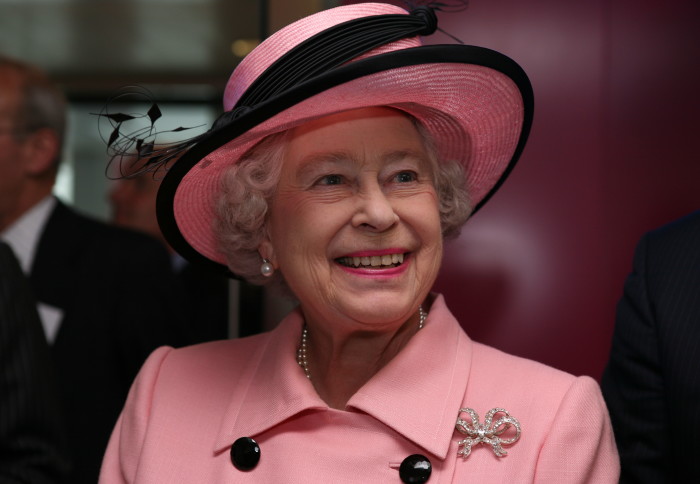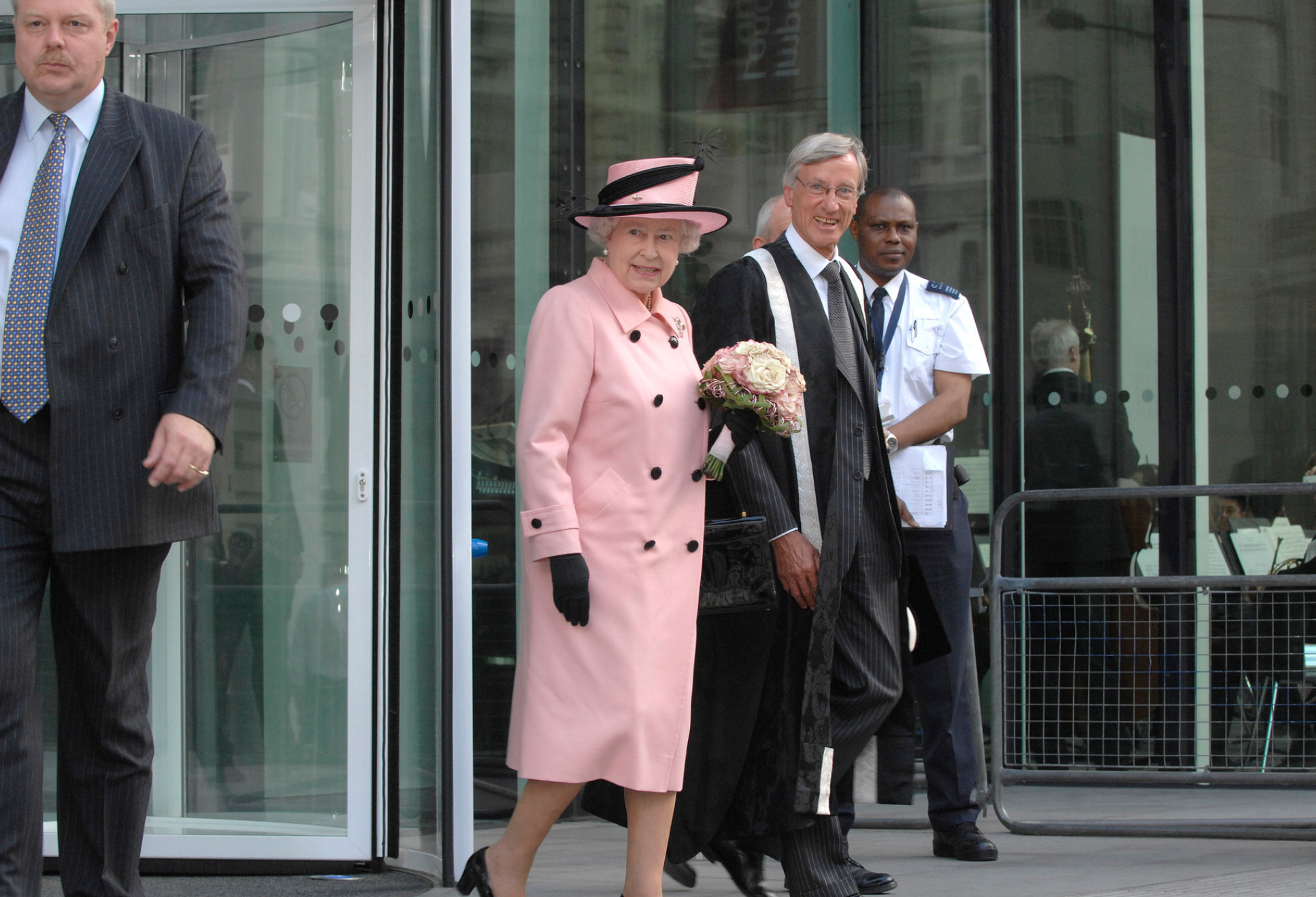Queen Elizabeth II: Imperial remembers Britain's longest reigning monarch

Imperial College London has paid tribute to Her Majesty The Queen, following news of her death.
The Queen died peacefully at Balmoral Castle on 8 September, Buckingham Palace has confirmed.
Imperial has close and historic ties with The Queen, who witnessed several important College milestones.
Longstanding links
In 1969 The Queen visited Imperial for the first time to open the Sherfield Building – known at the time as “the College Block”. The building’s construction was part of Imperial’s post-war expansion scheme, which aimed to help Imperial meet the scientific and technological challenges of the 20th century.
 Speaking at a ceremony to mark the opening of the building during her visit, Her Majesty The Queen said that Imperial was one of the few universities chosen as “the spearhead of a selected attack on the problem of providing more university educated scientists and engineers” in the post-war era.
Speaking at a ceremony to mark the opening of the building during her visit, Her Majesty The Queen said that Imperial was one of the few universities chosen as “the spearhead of a selected attack on the problem of providing more university educated scientists and engineers” in the post-war era.
The Queen added: “In this you have been outstandingly successful, for you have grown not only in size but also in distinction as you have discharged the responsibility laid upon you. What is more, you have done much as you have grown to bring the pure and the applied sciences together.”
Great vision
In 1998, The Queen opened the Sir Alexander Fleming Building, created to be the new headquarters for the College's medical and biomedical research. The building also became the heart of Imperial’s recently formed School of Medicine, the product of a series of mergers with leading London medical schools.
Speaking during her visit, The Queen said: “Prince Albert would certainly view this coming together of science, engineering and medicine with enthusiasm, knowing that it is yet further proof that his great vision is still in the process of being realised.”
Prince Albert, The Queen’s great-great grandfather, envisioned a vibrant cultural quarter in South Kensington celebrating science, technology, design and the arts. This vision led ultimately to the founding of the area’s great institutions – including Imperial.
Landmark moments
The Queen visited Imperial again in 2004 to witness the opening of Imperial College Business School and the College’s newly constructed Main Entrance on Exhibition Road. The landmark building, designed by Sir Norman Foster and Partners, created the iconic entrance to the College, complete with its imposing image of a multi-coloured scan of a brain, representing the brainpower of the institution.
During Imperial’s 2007 centenary celebrations, The Queen presented the College with a new Royal Charter, marking its independence from the University of London. At the event, she awarded the very first Imperial College London degrees to several honorary graduates, including her husband the Duke of Edinburgh.
Speaking at the event, The Queen said: “Imperial was founded with the intention that it should support British technology and industry in the face of international competition. You have certainly fulfilled that aspiration.
“Today you renew your mission of applying your learning, discoveries and innovation to meet the changing needs of society, industry and healthcare. You will also, of course, continue to carry out the important task of educating the young people who will become the future inventors, discoverers and leaders of business and society.
“By discharging this academic mission, you play a vital role in supporting this country's position on the world stage.”

The event also saw the opening of the new Institute of Biomedical Engineering, which went on to spur the future development of innovations including Professor Christopher Toumazou’s rapid lab-free PCR tests for COVID-19.
Longest reigning monarch
Elizabeth II has been Queen of the United Kingdom and the Commonwealth Realms for more than 70 years. Born 21 April 1926, she acceded to the throne aged 25 on 6 February 1952, following the death of her father, King George VI. On 9th September 2015 she became the longest reigning monarch in British history, surpassing Queen Victoria.
Professor Hugh Brady, President of Imperial College London, says: “It is with great sorrow that we have learned of the death of The Queen. Throughout her extraordinary reign, The Queen has been a symbol of stability during periods of enormous change. Her death is a great loss to the British public and the world. I offer my deepest condolences to the Royal Family.”
Professor Ian Walmsley, Provost of Imperial, said: “The Queen has been present for some of the most significant moments in Imperial’s history. She has been an important champion of our mission, understanding that education and research are some of the greatest tools we have to drive progress and benefit society. We join the world in mourning her loss.”
Article text (excluding photos or graphics) © Imperial College London.
Photos and graphics subject to third party copyright used with permission or © Imperial College London.
Reporter
Press Office
Communications and Public Affairs
- Email: press.office@imperial.ac.uk
